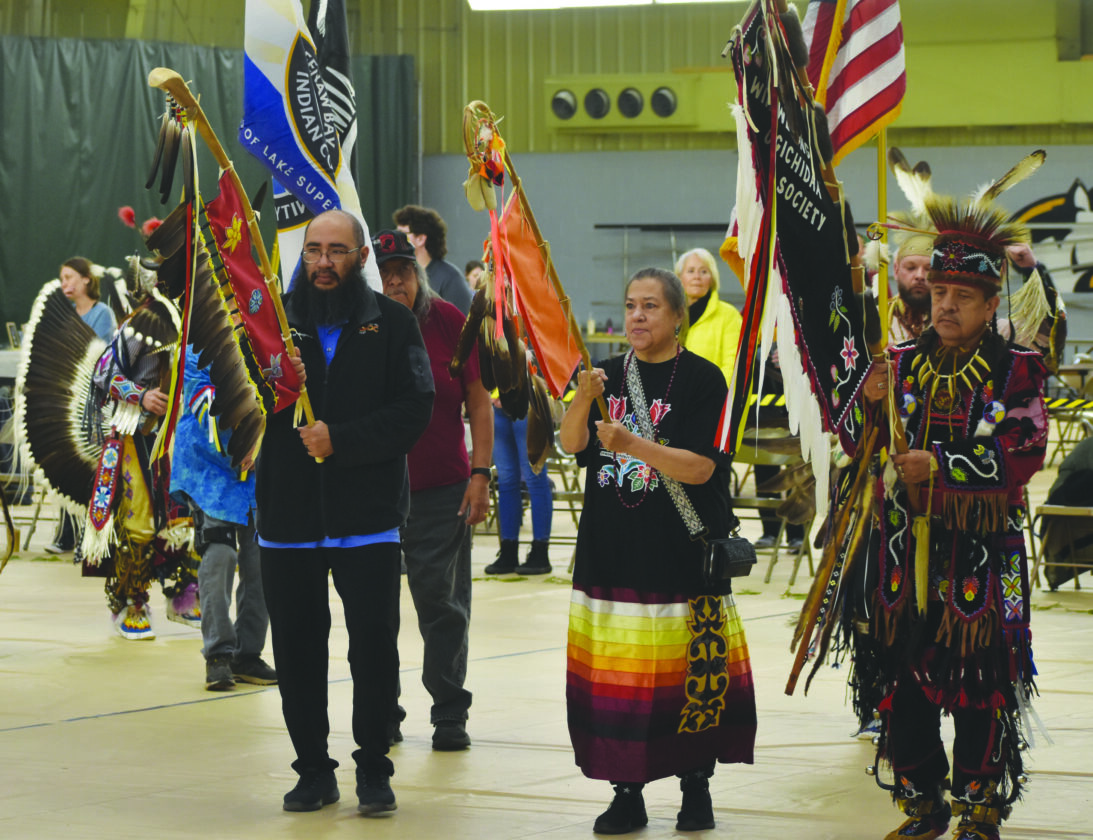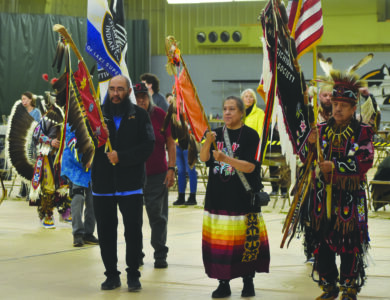Columbus Day, Indigenous Peoples Day or just Monday?
It depends on where you are

Gazette File Photo
Depending on where in the United States you live and for whom you work, Columbus Day may be a paid day off, an unpaid commemorative day, another holiday entirely or a regular Monday.
Columbus Day, the second Monday in October, has long been one of the most inconsistently celebrated U.S. holidays. It’s an official federal holiday, which means federal workers normally get a paid day off and there’s no mail delivery. (This year, many federal offices already are closed because of the ongoing government shutdown.) Most banks and the bond markets that trade in U.S. government debt also will be closed, but the stock markets, most retailers and other businesses will remain open.
However, the holiday has faced scrutiny from Native American advocates and others, who’ve argued that Christopher Columbus isn’t an appropriate person to celebrate. And observance at the state level varies widely.
On one hand, 30 states and three U.S. territories recognize Columbus Day in some form, based on a Pew Research Center review of state statutes, human resources websites and other sources. The holiday falls on the second Monday in October in all of those places except Washington state (where it’s fixed on Oct. 12) and Puerto Rico (where it’s commemorated on Nov. 19).
However, only 20 states and two territories make Columbus Day a paid holiday for state workers, meaning that state government offices will generally be closed. And in seven of those states and two territories, Columbus Day has a second, and sometimes more prominent, name:
•In five states, Columbus Day shares its spot on the calendar with Indigenous Peoples Day. In American Samoa, the two holidays are concurrently commemorated by governor’s memorandum each year.
• In Virginia, the second Monday in October is Columbus Day and Yorktown Victory Day.
• In Alabama, Columbus Day is also American Indian Heritage Day and Fraternal Day, which honors Freemasons, Rotarians, Elks, and other social, service and veterans clubs.
• The U.S. Virgin Islands officially observes Columbus Day, but the territory places much more emphasis on the other holiday it celebrates that day: Virgin Islands-Puerto Rico Friendship Day.
•In Puerto Rico, Día del Descubrimiento de Puerto Rico is commemorated on Nov. 19, marking Columbus’ arrival on the island. The second Monday in October is a paid holiday called Día de la Raza (Descubrimiento de América), which celebrates Latin American peoples and cultures.
Delaware dropped Columbus Day entirely in 2009, giving state workers a floating holiday instead (meaning they can take off any day of their choosing). And in 2019, Maine, Vermont, New Mexico and the District of Columbia replaced their paid Columbus Day holidays with Indigenous Peoples Day. (In Vermont, collective bargaining agreements let state employees use Indigenous Peoples Day as a floating holiday.)
In 10 states, Columbus Day is designated as a “public holiday,” a “legal holiday” or something similar, but it’s not a paid day off for state workers. Those designations mainly affect financial transactions, contract deadlines and other commercial matters.
One of those states, Tennessee, has a unique solution to the Columbus conundrum. The state officially observes Columbus Day, but the governor can (and routinely does) move the observance to the Friday after Thanksgiving, to facilitate a four-day weekend.
Honoring Native Americans and Indigenous people
All told, 17 states and D.C. have holidays honoring Native Americans on the second Monday in October. Six of those are alongside Columbus Day as a paid holiday, five are paid holidays on their own, and seven are unpaid days. Seven of these 17 states have additional commemorations of Native Americans or some aspect of Native history or culture, on dates other than the second Monday in October.
Many other states (18) do not have holidays honoring Native Americans on the second Monday in October, but they do celebrate such days, weeks or months at other times during the year. But of those states, only Maryland and Washington make their Native heritage days paid holidays – once again on the Friday after Thanksgiving.
Oklahoma, which is home to 39 Native American tribal nations, commemorates Indigenous history and culture in several ways. The state marks the second Monday in October as Oklahoma Native American Day, an unpaid day of observance. It also has Indian Day, celebrated on the first Saturday after the full moon in September. And a 1972 state law requires the governor to declare an official day for each tribe on a date of its choosing.
The history of Columbus Day
Originally conceived as a celebration of Italian American heritage, Columbus Day was first observed as a federal holiday in 1937. That was largely due to lobbying by the Knights of Columbus, a Catholic fraternal and service organization. The holiday moved from Oct. 12 to the second Monday in October starting in 1971.
More recently, Native American groups and other critics have advocated for changing the holiday to something else, citing Columbus’ mistreatment of Indigenous people and the legacy of European settlement that his voyages initiated.




